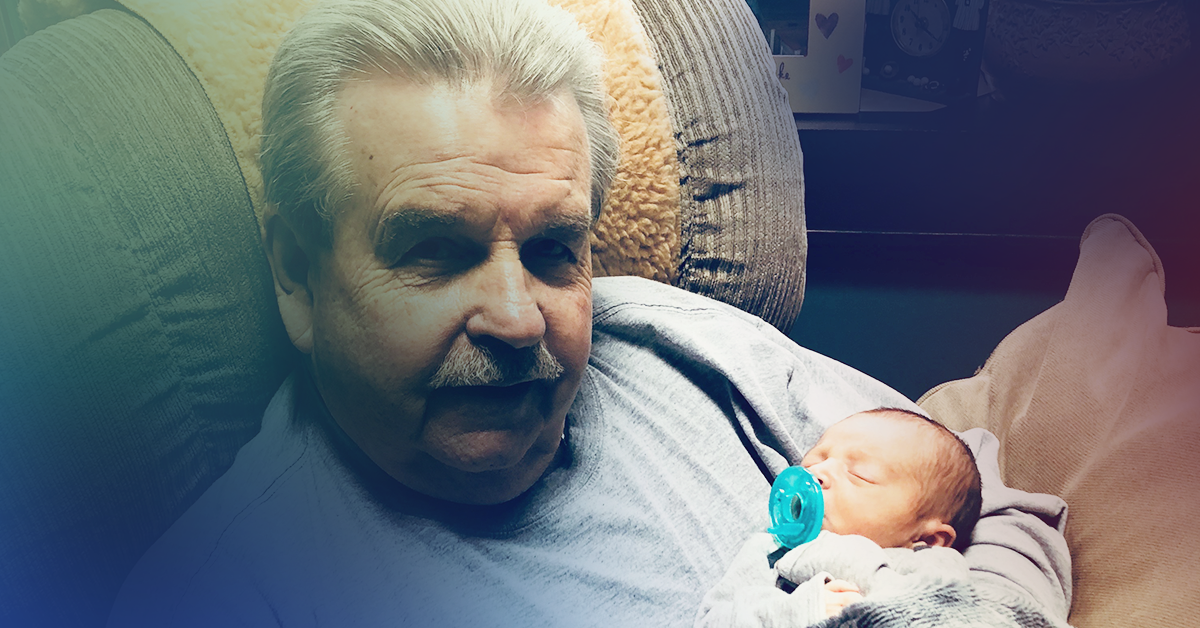
About 12 years ago, James Wolfe, a recently retired middle school vice principal, was enjoying a day at the shore with his family. He had just finished taking a swim and was walking across the beach when he was struck by intense lower back pain that radiated down his left leg. “It was like someone had both hands wrapped around my thigh and was squeezing as hard as they could,” says Wolfe. “I went from walking to limping within a matter of seconds.” Wolfe had dealt with occasional back pain in the past, but it had never been this severe, and it had never lasted more than a day or two. This time, the pain didn’t go away.
A Painful Journey: Years of Ups and Downs
Wolfe was diagnosed with degenerative spinal stenosis, a common condition that occurs when age related arthritis causes pinching of spinal nerves and in some cases, the spinal cord. He initially sought help from a local pain management group, where he received steroid injections and tried various other approaches like physical therapy and medications to treat the pain. “Those things worked for a while, but the pain always returned,” says Wolfe. Finally, in 2013, he saw a spine surgeon and underwent a laminectomy, a surgical procedure that widens the spinal canal in an attempt to relieve pressure on the spinal cord or nerves.
“For about three years after the surgery I had less pain,” says Wolfe. “Then, in 2018, it returned.”
The surgeon who had performed the laminectomy referred Wolfe to Dr. Mohammed Faraz Khan, a board-certified neurosurgeon at New Jersey Brain and Spine. Dr. Khan is one of the nation’s leading physicians in the treatment of complex disorders of the spine, and he has advanced fellowship training in minimally invasive spinal reconstruction and complex spinal cord surgery.
 A Conservative Approach: Nonsurgical Methods to Address Lower Back Pain
A Conservative Approach: Nonsurgical Methods to Address Lower Back Pain
During Wolfe’s first visit, Dr. Khan and Wolfe discussed his condition and previous treatments in detail. Dr. Khan also shared his initial thoughts related to treatment approaches, and his recommendations for additional tests and imaging. “Despite being extremely busy, he talked with me for more than an hour” says Wolfe. “Where do you get a doctor that spends that much time with you? It was clear that he cared about me and he put me at ease immediately.” While Dr. Khan is a leading provider of spinal surgery, he is also a strong advocate for conservative treatments, when appropriate. He recommended that Wolfe’s treatment should start with the more conservative approach of administering targeted diagnostic and therapeutic steroid injections into Wolfe’s lumbar spine.
“We agreed that another surgery at that time would be too aggressive, as his nerves may have been inflamed from irritation and needed more time to heal,” says Dr. Khan. “This would also be the least invasive method we could try to alleviate his symptoms since the pain was limiting him from effective physical therapy.”
For more than two years, Wolfe responded well to the steroid injections. His leg and lower back pain reduced significantly, and he was able to return to normal life. Then, in December 2018, he had sudden onset of leg weakness and severe lower back pain and leg pain. “My leg began to feel numb, and one day it just gave out and I fell down,” says Wolfe. “I kept falling three times in one day.” Eventually, Wolfe fell down and he was unable to get up. When his wife and friend couldn’t help him stand, they called the fire department to put him in a wheelchair and transport him to the hospital. “It was very scary, for both me and my wife,” says Wolfe. “We worried that I wouldn’t be able to walk again.”
Personal touch, positive outcome
Dr. Khan immediately ordered a lumbar MRI for Wolfe, which showed that his spinal stenosis was worsening. Given the severe nature of his leg weakness and the results of the MRI, he immediately scheduled Wolfe for spine surgery. “We knew that timely surgery would give Mr. Wolfe the best chance of recovering the worsening nerve function in his legs,” says Dr. Khan. “My goal was to restore his ability to walk and alleviate the severe pain he was experiencing.”
The day of the surgery, Wolfe’s procedure was delayed by several hours. As the night approached, Wolfe was concerned his surgery would get cancelled due to other hospital emergencies. While he was anxiously waiting, he was surprised to see Dr. Khan in the doorway of his hospital room. “He told my wife to go home and get some rest, and he stayed with me,” says Wolfe. “We watched football and waited together. It meant a lot that he stayed.” Dr. Khan, who is committed to treating his patients like family, says staying with Wolfe and completing the surgery that night was never a question. “I wanted to reduce his and his wife’s stress given all that they were going through,” says Dr. Khan. “I needed them to know that no matter how late it got, I was not going to go anywhere until I had done everything in my surgical ability to help him.” Late that night, Dr. Khan performed revision lumbar decompression surgery on Wolfe to reduce the compression on his spinal nerves.
As a result of this successful surgery, Wolfe is back on his feet and thriving. He can walk nearly one mile without assistance, work in the yard, and swim and play with his grandchildren. This summer, he spent a week at the shore with his family pain free.
“I’m extremely grateful to Dr. Khan,” says Wolfe. “No one ever wants to have surgery, but knowing Dr. Khan would be performing the procedure made me much more comfortable. He’s one heck of a surgeon, but he’s also a fantastic person. He gave me my life back.”


